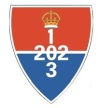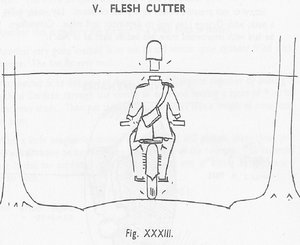Churchill's Secret Army
 Hugh gives an overview of how the GHQ Auxiliary Units - a deliberately unexciting name - came into being in 1940 with the threat of invasion. Churchill supported the idea and entrusted the set up to some very able men who were interested in “irregular warfare”. The Auxiliers were trained in weapons and explosives, sabotage and unarmed combat at Coleshill House in Oxfordshire, and hence the main organisation researching their activities is called CART, the Coleshill Auxiliary Research Team. (See www.staybehinds.com)
Hugh gives an overview of how the GHQ Auxiliary Units - a deliberately unexciting name - came into being in 1940 with the threat of invasion. Churchill supported the idea and entrusted the set up to some very able men who were interested in “irregular warfare”. The Auxiliers were trained in weapons and explosives, sabotage and unarmed combat at Coleshill House in Oxfordshire, and hence the main organisation researching their activities is called CART, the Coleshill Auxiliary Research Team. (See www.staybehinds.com)
The secret patrols were set up all round the coast from Scotland to the Irish sea. They tended to consist of 6 men who knew the land, which meant many of them were landowners and farm workers. They had an underground hideout, known as an Operational Base, in which to lay low in the event of invasion. They were then to pop up behind the enemy lines and cause mayhem to hinder the invasion. Life expectancy was estimated to be 12 days at best, and they had orders to kill themselves if capture seemed likely.
Hugh explains why the Secret Army was issued a uniform, and a special Home Guard battalion badge, even though they were quite separate to the Home Guard in so many ways.
Hugh’s father was in the Mistley/Horsley Cross Patrol, with a hideout near the banks of the River Stour, and Hugh is trying to identify and research all the other men in the North Essex and South Suffolk patrols.
Hugh has written two biographies of local men who were in the Secret Army. He tells some of their amusing tales detailing explosive experiments going rather wrong and run-ins with the regular home guard.
 Slides include the cover of the “1939 Countryman’s Diary” which was the disguised cover of the manual for guerrilla warfare, and some diagrams from within the book, and a sketch of the Operational Base that was well hidden in Fingringhoe sandpit.
Slides include the cover of the “1939 Countryman’s Diary” which was the disguised cover of the manual for guerrilla warfare, and some diagrams from within the book, and a sketch of the Operational Base that was well hidden in Fingringhoe sandpit.
Talk approx 45 mins (+/- 10 mins to suit)
This talk is centred around Colchester area of Essex with slight variants for the different local areas
